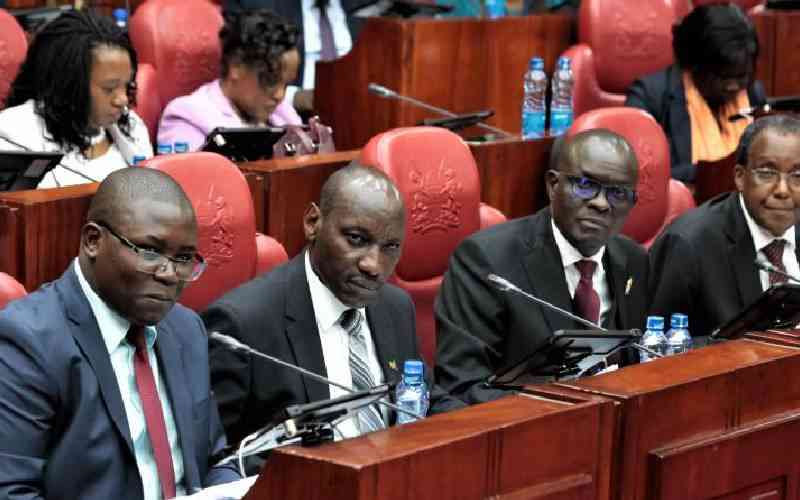
Teachers Service Commission's Cavin Anyuor, Jamleck Muturi, Timon Oyucho and Njuguna Ng'ang'a when they appeared before the National Assembly Education Committee to answer on the Teachers recruitment process on December 19th, 2022. [Boniface Okendo, Standard]
Teachers who graduated a long time ago but are currently unemployed can smile because their employer has said they will be considered in the next recruitment round.
Previously, the Teachers Service Commission (TSC) locked out those above 45 years in their selection criteria.
Facts First
This story continues on The Standard INSiDER. Subscribe now for unfiltered journalism that holds power to account.
Already have an account? Login
 The Standard Group Plc is a multi-media organization with investments in media
platforms spanning newspaper print
operations, television, radio broadcasting, digital and online services. The
Standard Group is recognized as a
leading multi-media house in Kenya with a key influence in matters of national
and international interest.
The Standard Group Plc is a multi-media organization with investments in media
platforms spanning newspaper print
operations, television, radio broadcasting, digital and online services. The
Standard Group is recognized as a
leading multi-media house in Kenya with a key influence in matters of national
and international interest.


